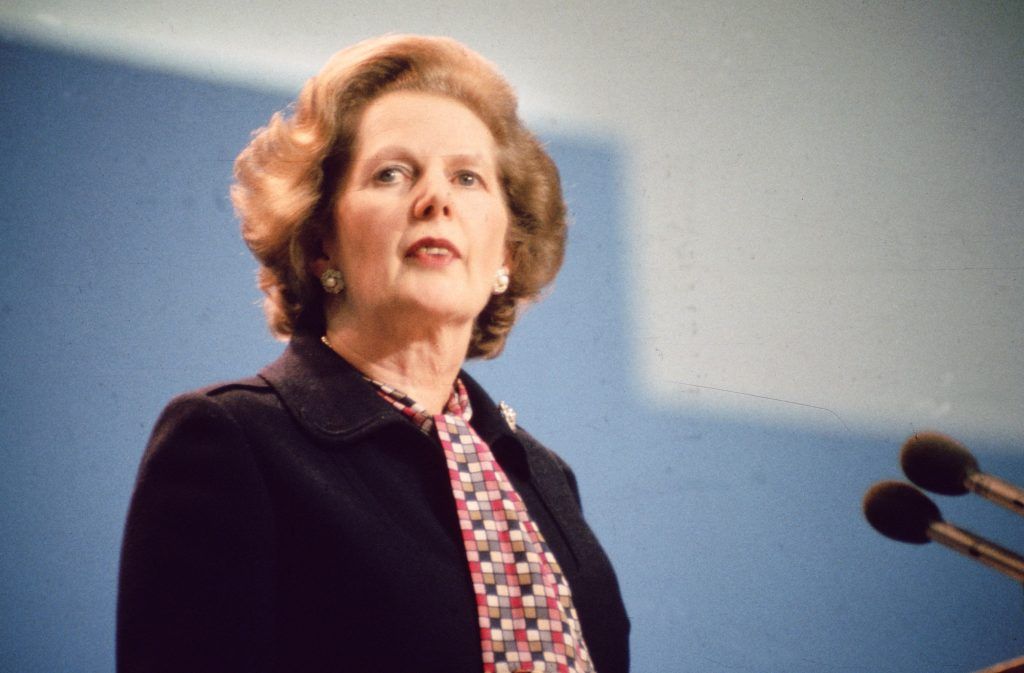A lesson fromMichael Crick of Channel 4 News on how to interview a politician?
(The following has been reproduced from https://www.joe.co.uk/news/journalist-decimates-theresa-mays-record-on-south-african-apartheid-in-car-crash-interview-197165 https://www.joe.co.uk/news/journalist-decimates-theresa-mays-record-on-south-african-apartheid-in-car-crash-interview-197165 where you can watch the interview - to whom many thanks):
"What did you do to help the release of Nelson Mandela?"
Having endured a day of intense scrutiny from the media, Theresa May was last night forced to defend her record on South African apartheid ahead of a visit to Nelson Mandela's cell on Robben Island. |
| Michael Crick interviews Teresa May |
Channel 4 news reporter Michael Crick used the opportunity of a one-on-one interview to question the prime minister about what she had done to oppose racial segregation in South Africa, which was only ended in the country in the early 90s.
During the two-minute grilling, May was repeatedly interrupted and refused to give a straight answer to the journalist's line of questioning, although she admitted that she had not personally taken part in protests against South Africa's white-only regime.
"You were active in politics in the 70s and 80s, what did you do to help release Nelson Mandela?" Crick asked.
May responded: "I think what is important is what the United Kingdon-" But Crick interrupted the prime minister, repeating: "No, what did you do? Did you go on protests? Did you get arrested outside the embassy? Did you boycott South African goods? Did you do anything?"
She replied: "I think you know full well, Michael, that I didn't go on protests. But what is important is the work that -"
"Well did you boycott South African goods?" Crick interrupted again. Only for May to continue:
"The work that the United Kingdom government did to ensure that it did give support where that support was needed."
Although not a member of parliament until 1997, Theresa May was an active Conservative politician and party member during the 1980s and served as a councillor for London Borough of Merton from 1986 to 1994.
Margaret Thatcher, addressing the Tory party conference
in 1984 (Photo by Hulton Archive/Getty Images)
Turning to the record of the Tory government at the time, Crick asked: "Hang on a minute at that stage Mrs Thatcher believed that Nelson Mandela was a terrorist. Were you a loyal Conservative member, did you think the same thing?"
May responded: "What was important was the support that the government was giving at the time, often support behind the scenes to ensure that we saw the result that we did in relation to the ending of apartheid here in South Africa."
Theresa May later visited the deceased former South African president's cell on Robben Island. Upon leaving the island, she wrote in the visitor book: "It has been a privilege to visit in this year - the 100th anniversary of the birth of Nelson Mandela. His legacy lives on in the hopes and dreams of young people here in South Africa and around the world."
__________________________________________________________
When Michael Crick was a young reporter in the early days of Channel 4 News, he interviewed me. But not in the way he did here with Mrs May because, unlike a lot of TV interviewers (e.g. John Humphrys) he understood the difference between an interview to obtain facts from an expert and an interview to put the interviewee under pressure.
So he doesn't always interrupt the interviewee in mid-answer as a matter of course (like John Humphrys) but only does so when his question is being as blatantly avoided as is done by the Prime Minister in this particular interview.
I have no idea why he resigned as political editor of BBC 2's Newsnight, but thought it a damaging loss to the BBC that he went back to Channel 4 News, were he started his TV career.
Crick is one of the reasons why so many of us believe that Channel 4 News is by far the best news programme on British television.
_________________________________________________________


No comments:
Post a Comment